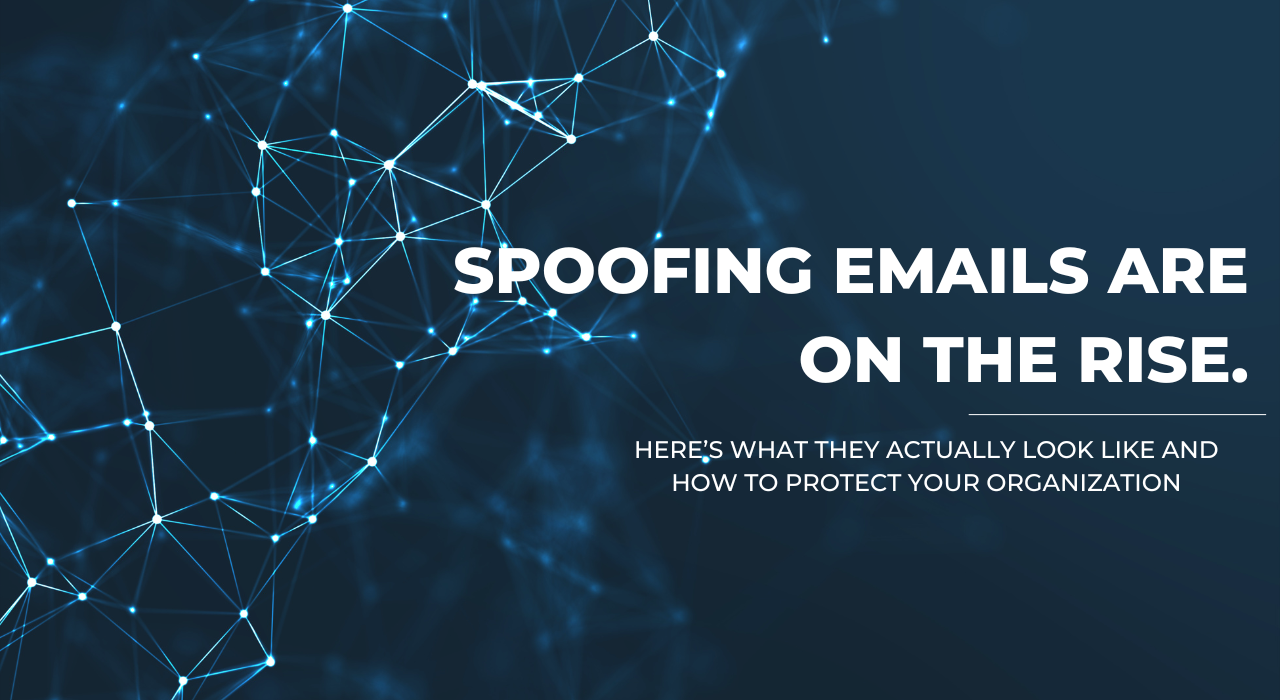Cybersecurity Awareness Training
When entrepreneurs, CEOs, and other decision-makers implement a passive cybersecurity strategy, the results often prove disastrous.
Enterprise-level firewalls, virtual private networks, and corporate-grade antivirus software sound like they deliver robust defenses against cybercriminals. To some degree, these and other defenses provide enough of a deterrent to make low-level thieves take a pass on hacking your network. But digital crime has become big business, and sophisticated hackers have increasingly targeted valued employees and management personnel.
According to Forbes magazine, “The average total cost per breach has increased from $3.54 million in 2006 to $8.19 million in 2019.” If you are a business leader, CSO reports that 23 percent of all organizations terminated executives after sustaining a data breach. In U.S. companies, that percentage was significantly higher.
While high-profile data incursions into massive corporations such as Equifax and Capital One make splashy headlines, countless industry leaders are kicked to the curb because a digital con-artist tricked one of your team members into giving them access to your system. That’s why cybersecurity training and awareness are no longer just a matter of losing money. It can mean your survival in the corporate world.
At Network Outsource, we provide businesses in New York City, Long Island, and the Tri-State area with determined cybersecurity training and awareness for the entire workforce. These are critical benefits of offering your workforce cybersecurity training that could also help you keep your job.

Cybersecurity Training Helps Your Workforce Identity Phony Emails
A cybercriminal may be sitting in a coffee shop on another continent, but they can target one of your remote workers or in-house personnel with ease.
Ranked among the most popular methods are so-called “phishing schemes.” This method involves sending out blanket emails that provide some form of incentive to open the message, download a malicious file, click on a link, or provide information about how to log on to a business network. During the peak of the pandemic, hackers ramped up their efforts by preying on fears, and they were wildly successful at stealing valuable data.
A staff that enjoys a thorough cybersecurity education learns the telltale signs to help them identify and delete potential threats. These include the following.
- Poor spelling and grammar errors
- Email does not identify you by name
- The message requires urgent response or action
- The message asks for login profile or personal information
A well-trained team will quickly recognize these and other red flags, click the delete tab and avert a potentially crushing network incursion.
Cybersecurity Training Empowers Your Workforce
According to a PwC survey that polled 120 American executives and 1,200 workers during the height of the pandemic, 70 percent of employees were required to work from home, and upwards of 30 percent were already completing tasks remotely. Offsite strategies may have helped organizations negotiate disruption, but work-from-anywhere policies are here to stay.
A recent Gartner study indicates that 74 percent of CFOs plan to maintain work-from-home jobs. Having even the most trusted employees away from in-house security and advice puts them in an inordinately vulnerable position. That moment of hesitation about whether to open a seemingly odd email often proves fateful.
But employees who undergo initial cybersecurity training and ongoing awareness gain a sense of empowerment. Their sensibilities about electronic messages are honed like a sharp knife. Cybersecurity training not only improves your defenses, but it also turns your workforce into confident decision-makers.
Cybersecurity Training Protects Your Valuable Assets
One of the common misconceptions about hackers is that they are no more than online thugs. That sometimes pervasive attitude tends to make industry leaders believe cybersecurity infrastructure will adequately protect their digital assets. Nothing could be further from the truth.
In reality, sophisticated cyber-thieves are part of a criminal underground that steals, buys, and sells, sensitive information on the dark web. A more accurate depiction of cybercriminals might be the Mafia at the height of the Al Capone era. They are clever, organized, and make savvy business decisions driven purely by profit.
Digital thieves troll the internet searching for undertrained and uneducated employees who they can pluck like low-hanging fruit. Hackers consider an employee’s personal device an insecure door that can be picked to burglarize your sensitive and valuable assets. Statistics indicate that more than 164 million records were compromised in the U.S. during 2019. Needless to say, hackers are outflanking businesses at an alarming rate.
Cybersecurity Training Protects Your Reputation
When passive cybersecurity strategies are implemented, too often they base decisions on only quantitative data. Typically, a task force reviews potential financial losses and peripheral costs. But qualitative setbacks such as diminished reputation and trust often prove more problematic than rebuilding your coffers. A Ponemon Institute study published by Experian highlights the following findings with regards to reputation.
- More than 80 percent of those polled said knowledge of a customer information data breach would negatively impact the value of an organization or brand. Respondents indicated reputation restoration would take approximately one year.
- More than half of those polled said that a breach of employee data would tarnish an organization’s image and reputation.
- When business data is stolen, 80 percent of respondents stated an organization would suffer a hit to its reputation.
According to the report, “(73 percent) say that reputation and brand image are inextricably linked.” Given that a large percentage of data breaches leverage employee login profile information and device hacks, cybersecurity training and awareness are vital to maintaining your pristine reputation.
Cybersecurity Training Helps Business Achieve Compliance
New York recently fully implemented the Stop Hacks and Improve Electronic Data Security (SHIELD) Act. The laws expand the responsibilities of organizations to protect and secure employee and customer information. The measure has far-reaching compliance and governance implication that extend beyond the New York State borders.
Companies doing business with residents or housing their data can be hit with fines that can reach $250,000. The SHIELD Act stands as just one example of companies needing to harden their defenses to comply with government security regulations.
Cybersecurity training differs from infrastructure because it involves an ongoing process. Staff members initially undergo an educational process that highlights critical threats and how to identify them. Ongoing cybersecurity training and awareness promptly updates entire workforces about new and emerging threats. As a leader in the Tri-State area, Network Outsource delivers proactive cybersecurity training and awareness that can help you harden your defenses and avoid a disastrous breach.




